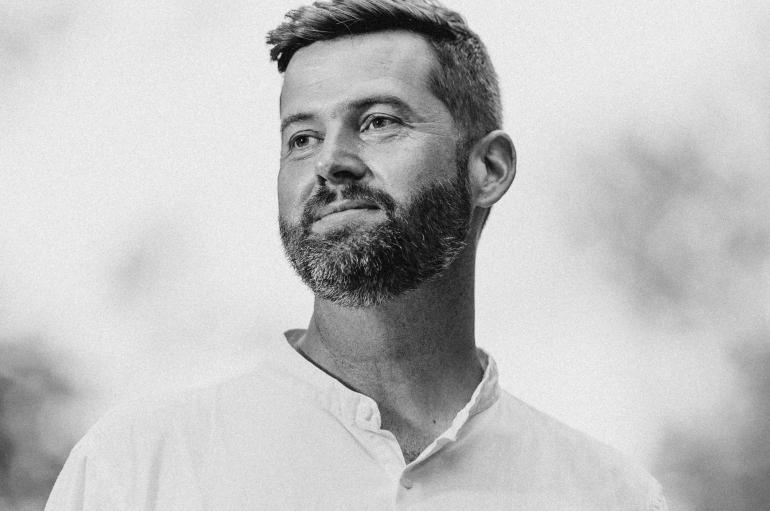
Christopher Stark is a composer of contemporary classical music deeply rooted in the American West. Having spent his formative years in rural western Montana, his music is always seeking to capture the expansive energy of this quintessential American landscape. Stark, whose music The New York Times has called, "fetching and colorful," has been awarded prizes from the American Academy in Rome, the Guggenheim Foundation, the Fromm Foundation at Harvard, Chamber Music America, ASCAP, and the Barlow Endowment.
On May 23, 2025, the Grossman Ensemble will premiere Stark's composition Meltwater Pulse. Learn more about Stark's new piece and experience working with the Grossman Ensemble below.
---
Many of your compositions draw on your rural Montana upbringing. Is there a particular aspect of the landscape that Meltwater Pulse captures or is inspired by? How does it depict this sonically?
This particular work does not draw directly upon my western roots, but it is inspired by nature, and more specifically, glacial melt. I depict this with a literal field recording of a calving glacier and also by attempting to create an ominous and eerie sound world.
When you compose with a particular landscape in mind, do you draw upon your own memories and experiences, or do you actively conduct some sort of field research?
I very often conduct field research as part of my process. I have traveled all over the world collecting sounds. For this work, I didn't physically travel, but instead researched online — which I consider a legit form of travel, because when I was a teenager in Montana in the 90s, the dial-up internet was my only outlet to the world outside of my very small, rural town.
Meltwater Pulse features a sine tone synthesizer for almost the entirety of the piece. What role does the synthesizer play in creating Meltwater Pulse’s unique soundscape?
I was looking for ways to create "pulses" throughout the piece, and one of the ways I achieved this was by playing two tones slightly out of tune. The sine tone synthesizer can do this in a "perfect" and synthetic way. The instruments also attempt to do this, but in a more "imperfect" and organic way. At the end of the day, I just like the sound of it. I wanted to write simple consonances and "shimmer" them with out-of-tune pulses.
Are there any particular moments, instruments, or effects the audience should pay special attention to when listening to your piece?
The percussionists, conductor, and woodwinds all play jay calls, which are bird calls that make a beautiful noisy sound. I use them to dialogue with the field recording of the calving glacier, which is also quite noisy.
When you heard the Grossman Ensemble perform your work for the first time, were there any moments that surprised you or uncovered a new layer of the piece?
The ensemble is really great at trying different things and providing feedback. It's been really fun to write from a more idealistic and non-practical place, just to see where the limits of certain ideas are. In some professional settings with few rehearsals, you might find yourself rounding off the edges of a composition because you might be worried about whether something is playable or practical. It was really great to not have to worry about that with this ensemble. It gives the work more life and a stronger identity, and it helps my imagination when composing future works.
When you're not actively conducting or composing, what do you like to do in your free time to relax and stay inspired?
I play tennis. A lot. I like to be outside. That doesn't necessarily inspire my music, but it helps me relax and enjoy my life. For inspiration, I'll usually attend concerts, art exhibitions, readings, or travel somewhere new.
